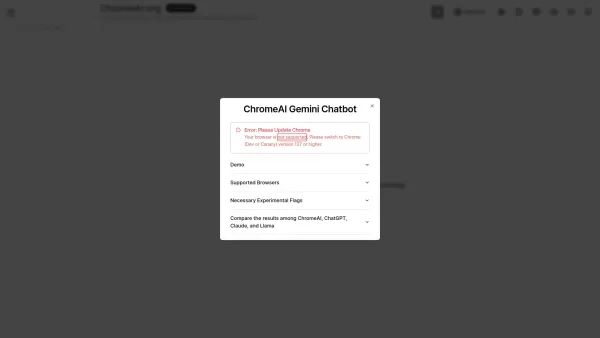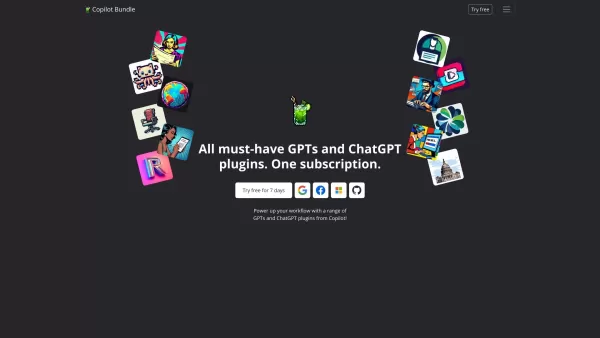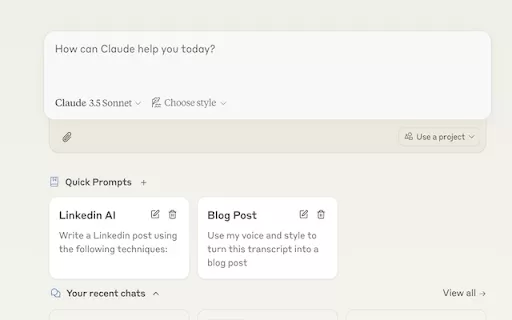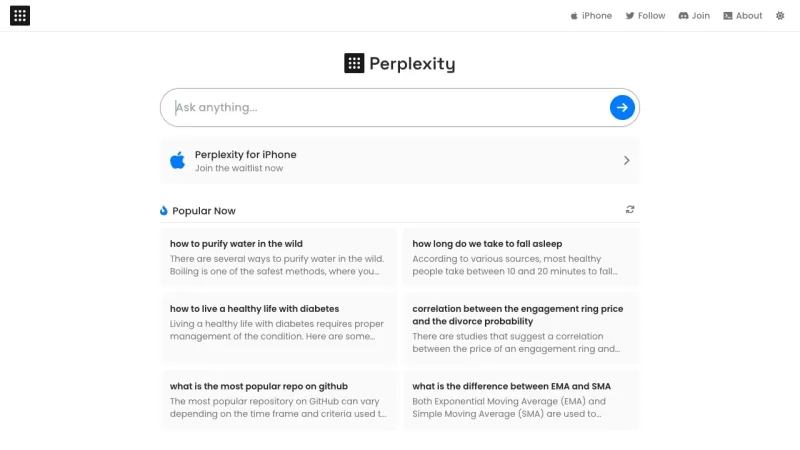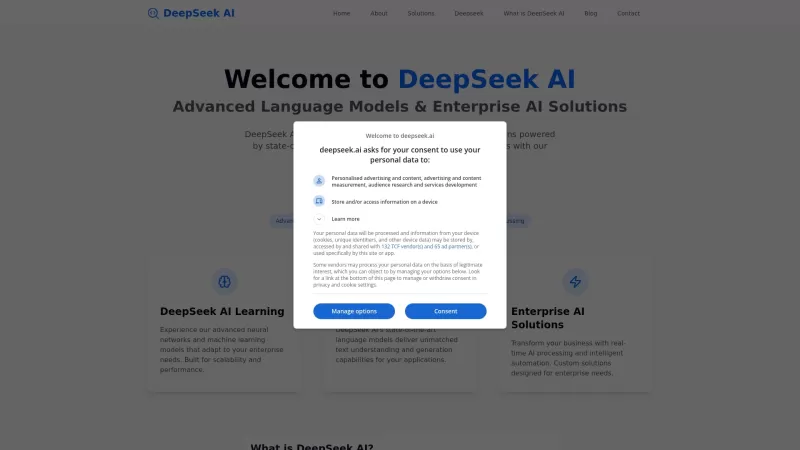LLM Medical Feature Development: Transforming Fertility Care with Innovation

 May 4, 2025
May 4, 2025

 StevenWilson
StevenWilson

 0
0
Revolutionizing Fertility Clinics with AI
The world of healthcare is witnessing a transformation, particularly in fertility clinics, thanks to the integration of Artificial Intelligence (AI). This article explores how Large Language Models (LLMs), alongside SQL and GraphQL technologies, are enhancing medical feature development. These advancements lead to more efficient data management and ultimately, better patient outcomes. We'll dive into the challenges and opportunities these technologies present, focusing on practical applications and considerations for both developers and healthcare professionals.
Key Points
- LLMs are transforming the analysis of complex medical data in fertility clinics.
- SQL and GraphQL enhance data retrieval and manipulation efficiency.
- AI accelerates and refines medical feature development.
- Data security and patient privacy remain top priorities.
- Collaboration between AI developers and medical professionals is crucial.
The Role of AI in Modern Fertility Treatment
Fertility clinics handle vast amounts of data, from patient histories to lab results and treatment outcomes. Traditionally, managing and interpreting this data has been a challenging and time-consuming task. However, AI, specifically LLMs, automates data analysis, predicts treatment success, and personalizes patient care. These algorithms can spot patterns and correlations in the data that might go unnoticed by human eyes, leading to more informed decisions and tailored treatment plans. This not only speeds up research but also directly benefits patients on their fertility journey by providing doctors with valuable insights that can enhance the likelihood of successful conception.
AI's ability to process and analyze large datasets quickly and accurately revolutionizes every aspect of fertility treatment, from diagnosis to personalized treatment planning. Its capacity to learn, adapt, and offer actionable insights makes it an indispensable tool for clinics aiming to provide cutting-edge care.

SQL and GraphQL: Data Access and Efficiency
While AI provides the analytical muscle, efficient access to and manipulation of data is equally important. Here, SQL and GraphQL step in. SQL, or Structured Query Language, is fundamental for interacting with relational databases, enabling the extraction, updating, and management of structured medical records.
However, SQL can be limiting when dealing with the intricate and interconnected data found in modern fertility clinics. This is where GraphQL shines, offering a more flexible and efficient alternative. It allows clients to request specific data points, reducing over-fetching and boosting performance. This is especially useful for mobile apps and web interfaces that need quick access to relevant information.
In practice, SQL and GraphQL work together to ensure that AI algorithms can access the right data, in the right format, at the right time, which is essential for LLM-driven medical feature development.
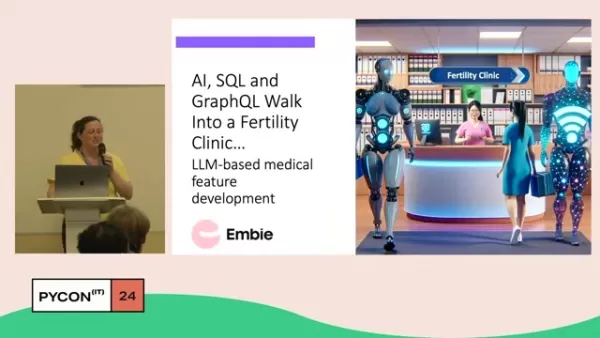
Meeting Doctor Tzerfati: A Fertility Specialist's Data Dilemma
Consider Dr. Tzerfati, a leading fertility specialist who needs to quickly check a patient's highest estradiol level to decide the best time for egg retrieval. She faces a common challenge: data accessibility. The necessary data is scattered across different databases and electronic health record (EHR) systems, making manual retrieval time-consuming and prone to errors.
Without an efficient system, Dr. Tzerfati would have to sift through multiple systems, manually compile data, and reconcile discrepancies. This not only hampers efficiency but also increases the risk of errors and data omissions.
Luckily, AI-driven LLMs are designed to solve this issue. By streamlining data access, LLMs allow doctors like Dr. Tzerfati to focus more on patient care, making critical decisions with the right data at their fingertips.

Overcoming Medical Data Query Challenges with LLMs
One of the biggest hurdles for medical professionals is querying and retrieving patient data efficiently. Data is often buried deep within various databases, making it difficult to access. This leads to time-consuming searches and reliance on IT support for even basic queries.
LLMs offer a groundbreaking solution by allowing doctors to ask questions in natural language. These models understand the intent and context of a query and translate it into a precise database query, quickly and accurately retrieving the needed data. This approach eliminates the need for medical professionals to be database experts, enabling them to focus on patient care.
Moreover, LLMs enhance data system interoperability, making it easier to access deeply stored data.
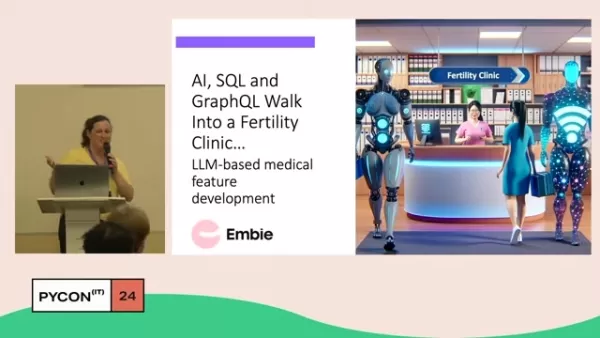
Safeguarding Patient Data: Security Considerations
Handling medical data requires strict adherence to data privacy and security regulations, especially given the inclusion of Personally Identifiable Information (PII). While LLMs make data searches easier and more accurate, it's crucial that access is limited to authorized personnel in compliance with regulations. Robust data validation, encryption techniques, and stringent access control policies are essential to protect patient information. Regular audits and compliance checks help maintain these security standards.
Adopting a privacy-first approach and ongoing security monitoring are key to minimizing risks and ensuring the ethical use of data-driven healthcare solutions. Healthcare organizations must be vigilant and continuously educate their staff on these practices.

Integrating LLMs with Medical Databases: A Technical Overview
To effectively integrate LLMs into fertility clinic workflows, several technical aspects must be addressed. The first step involves establishing a secure, reliable connection between the LLM and the clinic's medical databases. This might involve developing a custom API or using existing APIs from EHR systems, accessible via GraphQL or REST formats.
Ensuring data format compatibility and effective data transformation is crucial. The LLM must be trained on fertility-specific medical terminology and data structures, which could mean fine-tuning pre-trained LLMs with relevant datasets or training custom models from scratch.
Security measures like encryption and access control are vital at every integration stage. By addressing these technical considerations carefully, fertility clinics can develop AI-powered solutions that are both effective and secure. The integration process includes:
- Data collection
- Choosing an LLM platform
- Fine-tuning the LLM with fertility data
- Creating custom workflows
- Deployment and monitoring
This approach ensures an easy-to-use interface for users at all technical levels.
Embie: The Solution for Fertility Clinics
Embie specializes in developing medical platforms for fertility clinics, focusing on medical feature development. Embie offers a range of features that enhance clinic operations:
- Natural Language Data Interaction: Embie's natural language capabilities streamline data processes, providing an efficient workflow for medical experts.
- Advanced Security: Embie implements strict policies to protect all PII-related data.
- Specific Tools: Embie uses LLM, AI, and GraphQL for efficient data retrieval.
- Custom Workflows: Tailored to meet the specific needs of the clinic.
- Interoperability: Ensures clear, accurate, and secure data use, improving clinic organization.

Pros and Cons of LLM in the Medical Field
Pros
- Enhanced data analysis capabilities
- Improved predictive accuracy
- Streamlined workflows and improved efficiency
- Enables personalized treatments
Cons
- Potential concerns over data privacy and security
- Need for continuous training and model updates
- Complex implementations
Main Advantages of Using Embie in Fertility Clinics
Embie's goal is to enhance efficiency in fertility clinics by leveraging AI's analytical power and ensuring efficient data access and manipulation. Key advantages include:
- Natural language querying
- Robust validation procedures to ensure doctors have the data they need

Real-World Use Cases in Fertility Clinics
A practical application of AI in fertility clinics is optimizing the timing of egg retrieval. By analyzing a patient's historical estradiol levels, an LLM can predict the optimal window for retrieval more accurately than traditional methods, potentially improving egg quality and fertilization success rates.
Similarly, for embryo transplantation, analyzing data from previous transfers can identify key factors influencing implantation, allowing for personalized procedures to maximize success rates. LLMs can analyze patient data, lab results, and medical reports to uncover insights previously unseen.

FAQ
How does AI ensure data security in fertility clinics?
AI systems are equipped with robust security features like encryption and access control policies. Regular audits and compliance checks are also conducted to maintain security standards.
What type of medical data can LLMs analyze?
LLMs can analyze a wide range of data, including patient history, lab results, and treatment outcomes, with the aim of streamlining, aggregating, and simplifying data.
Do medical professionals need AI expertise to use these tools?
No, LLMs allow medical professionals to query data in natural language, which is then converted and accurately retrieved, eliminating the need for AI expertise.
Related Questions
What is precision medicine and how does it intersect with artificial intelligence?
Precision medicine is a healthcare model that customizes medical decisions and treatments to individual patients. It's particularly challenging in fertility, where personalized treatment can optimize resource use in IVF. Precision medicine and LLMs are closely linked, as personalized treatment requires data interoperability and insights, which LLMs facilitate effectively.
Related article
 Adobe Podcast AI: Easily Boost Audio Quality
In today's digital world, where clear audio is essential for content creators, podcasters, and anyone keen on making their voice heard, Adobe Podcast AI stands out as a revolutionary tool. It's a free, AI-powered platform designed to significantly boost audio quality, making it easier than ever to p
Adobe Podcast AI: Easily Boost Audio Quality
In today's digital world, where clear audio is essential for content creators, podcasters, and anyone keen on making their voice heard, Adobe Podcast AI stands out as a revolutionary tool. It's a free, AI-powered platform designed to significantly boost audio quality, making it easier than ever to p
 Create Your Personal AI Phone Assistant: Mastering Outbound Calls and Function Calling
Interested in elevating your AI phone assistant to new heights? This detailed guide is here to help you build a sophisticated system that not only handles outbound calls but also integrates function calling. By leveraging the capabilities of OpenAI for managing conversations, Deepgram for converting
Create Your Personal AI Phone Assistant: Mastering Outbound Calls and Function Calling
Interested in elevating your AI phone assistant to new heights? This detailed guide is here to help you build a sophisticated system that not only handles outbound calls but also integrates function calling. By leveraging the capabilities of OpenAI for managing conversations, Deepgram for converting
 VoiceMod AI Voice Changers: Real-Time Transformation Guide
VoiceMod has truly transformed the way we communicate digitally, offering a platform where you can change your voice in real time. Picture this: you're chatting online, and with a click, you can sound like someone else, adding a touch of anonymity, humor, or just experimenting with different charact
Comments (0)
0/200
VoiceMod AI Voice Changers: Real-Time Transformation Guide
VoiceMod has truly transformed the way we communicate digitally, offering a platform where you can change your voice in real time. Picture this: you're chatting online, and with a click, you can sound like someone else, adding a touch of anonymity, humor, or just experimenting with different charact
Comments (0)
0/200

 May 4, 2025
May 4, 2025

 StevenWilson
StevenWilson

 0
0
Revolutionizing Fertility Clinics with AI
The world of healthcare is witnessing a transformation, particularly in fertility clinics, thanks to the integration of Artificial Intelligence (AI). This article explores how Large Language Models (LLMs), alongside SQL and GraphQL technologies, are enhancing medical feature development. These advancements lead to more efficient data management and ultimately, better patient outcomes. We'll dive into the challenges and opportunities these technologies present, focusing on practical applications and considerations for both developers and healthcare professionals.
Key Points
- LLMs are transforming the analysis of complex medical data in fertility clinics.
- SQL and GraphQL enhance data retrieval and manipulation efficiency.
- AI accelerates and refines medical feature development.
- Data security and patient privacy remain top priorities.
- Collaboration between AI developers and medical professionals is crucial.
The Role of AI in Modern Fertility Treatment
Fertility clinics handle vast amounts of data, from patient histories to lab results and treatment outcomes. Traditionally, managing and interpreting this data has been a challenging and time-consuming task. However, AI, specifically LLMs, automates data analysis, predicts treatment success, and personalizes patient care. These algorithms can spot patterns and correlations in the data that might go unnoticed by human eyes, leading to more informed decisions and tailored treatment plans. This not only speeds up research but also directly benefits patients on their fertility journey by providing doctors with valuable insights that can enhance the likelihood of successful conception.
AI's ability to process and analyze large datasets quickly and accurately revolutionizes every aspect of fertility treatment, from diagnosis to personalized treatment planning. Its capacity to learn, adapt, and offer actionable insights makes it an indispensable tool for clinics aiming to provide cutting-edge care.

SQL and GraphQL: Data Access and Efficiency
While AI provides the analytical muscle, efficient access to and manipulation of data is equally important. Here, SQL and GraphQL step in. SQL, or Structured Query Language, is fundamental for interacting with relational databases, enabling the extraction, updating, and management of structured medical records.
However, SQL can be limiting when dealing with the intricate and interconnected data found in modern fertility clinics. This is where GraphQL shines, offering a more flexible and efficient alternative. It allows clients to request specific data points, reducing over-fetching and boosting performance. This is especially useful for mobile apps and web interfaces that need quick access to relevant information.
In practice, SQL and GraphQL work together to ensure that AI algorithms can access the right data, in the right format, at the right time, which is essential for LLM-driven medical feature development.

Meeting Doctor Tzerfati: A Fertility Specialist's Data Dilemma
Consider Dr. Tzerfati, a leading fertility specialist who needs to quickly check a patient's highest estradiol level to decide the best time for egg retrieval. She faces a common challenge: data accessibility. The necessary data is scattered across different databases and electronic health record (EHR) systems, making manual retrieval time-consuming and prone to errors.
Without an efficient system, Dr. Tzerfati would have to sift through multiple systems, manually compile data, and reconcile discrepancies. This not only hampers efficiency but also increases the risk of errors and data omissions.
Luckily, AI-driven LLMs are designed to solve this issue. By streamlining data access, LLMs allow doctors like Dr. Tzerfati to focus more on patient care, making critical decisions with the right data at their fingertips.

Overcoming Medical Data Query Challenges with LLMs
One of the biggest hurdles for medical professionals is querying and retrieving patient data efficiently. Data is often buried deep within various databases, making it difficult to access. This leads to time-consuming searches and reliance on IT support for even basic queries.
LLMs offer a groundbreaking solution by allowing doctors to ask questions in natural language. These models understand the intent and context of a query and translate it into a precise database query, quickly and accurately retrieving the needed data. This approach eliminates the need for medical professionals to be database experts, enabling them to focus on patient care.
Moreover, LLMs enhance data system interoperability, making it easier to access deeply stored data.

Safeguarding Patient Data: Security Considerations
Handling medical data requires strict adherence to data privacy and security regulations, especially given the inclusion of Personally Identifiable Information (PII). While LLMs make data searches easier and more accurate, it's crucial that access is limited to authorized personnel in compliance with regulations. Robust data validation, encryption techniques, and stringent access control policies are essential to protect patient information. Regular audits and compliance checks help maintain these security standards.
Adopting a privacy-first approach and ongoing security monitoring are key to minimizing risks and ensuring the ethical use of data-driven healthcare solutions. Healthcare organizations must be vigilant and continuously educate their staff on these practices.

Integrating LLMs with Medical Databases: A Technical Overview
To effectively integrate LLMs into fertility clinic workflows, several technical aspects must be addressed. The first step involves establishing a secure, reliable connection between the LLM and the clinic's medical databases. This might involve developing a custom API or using existing APIs from EHR systems, accessible via GraphQL or REST formats.
Ensuring data format compatibility and effective data transformation is crucial. The LLM must be trained on fertility-specific medical terminology and data structures, which could mean fine-tuning pre-trained LLMs with relevant datasets or training custom models from scratch.
Security measures like encryption and access control are vital at every integration stage. By addressing these technical considerations carefully, fertility clinics can develop AI-powered solutions that are both effective and secure. The integration process includes:
- Data collection
- Choosing an LLM platform
- Fine-tuning the LLM with fertility data
- Creating custom workflows
- Deployment and monitoring
This approach ensures an easy-to-use interface for users at all technical levels.
Embie: The Solution for Fertility Clinics
Embie specializes in developing medical platforms for fertility clinics, focusing on medical feature development. Embie offers a range of features that enhance clinic operations:
- Natural Language Data Interaction: Embie's natural language capabilities streamline data processes, providing an efficient workflow for medical experts.
- Advanced Security: Embie implements strict policies to protect all PII-related data.
- Specific Tools: Embie uses LLM, AI, and GraphQL for efficient data retrieval.
- Custom Workflows: Tailored to meet the specific needs of the clinic.
- Interoperability: Ensures clear, accurate, and secure data use, improving clinic organization.

Pros and Cons of LLM in the Medical Field
Pros
- Enhanced data analysis capabilities
- Improved predictive accuracy
- Streamlined workflows and improved efficiency
- Enables personalized treatments
Cons
- Potential concerns over data privacy and security
- Need for continuous training and model updates
- Complex implementations
Main Advantages of Using Embie in Fertility Clinics
Embie's goal is to enhance efficiency in fertility clinics by leveraging AI's analytical power and ensuring efficient data access and manipulation. Key advantages include:
- Natural language querying
- Robust validation procedures to ensure doctors have the data they need

Real-World Use Cases in Fertility Clinics
A practical application of AI in fertility clinics is optimizing the timing of egg retrieval. By analyzing a patient's historical estradiol levels, an LLM can predict the optimal window for retrieval more accurately than traditional methods, potentially improving egg quality and fertilization success rates.
Similarly, for embryo transplantation, analyzing data from previous transfers can identify key factors influencing implantation, allowing for personalized procedures to maximize success rates. LLMs can analyze patient data, lab results, and medical reports to uncover insights previously unseen.

FAQ
How does AI ensure data security in fertility clinics?
AI systems are equipped with robust security features like encryption and access control policies. Regular audits and compliance checks are also conducted to maintain security standards.
What type of medical data can LLMs analyze?
LLMs can analyze a wide range of data, including patient history, lab results, and treatment outcomes, with the aim of streamlining, aggregating, and simplifying data.
Do medical professionals need AI expertise to use these tools?
No, LLMs allow medical professionals to query data in natural language, which is then converted and accurately retrieved, eliminating the need for AI expertise.
Related Questions
What is precision medicine and how does it intersect with artificial intelligence?
Precision medicine is a healthcare model that customizes medical decisions and treatments to individual patients. It's particularly challenging in fertility, where personalized treatment can optimize resource use in IVF. Precision medicine and LLMs are closely linked, as personalized treatment requires data interoperability and insights, which LLMs facilitate effectively.
 Adobe Podcast AI: Easily Boost Audio Quality
In today's digital world, where clear audio is essential for content creators, podcasters, and anyone keen on making their voice heard, Adobe Podcast AI stands out as a revolutionary tool. It's a free, AI-powered platform designed to significantly boost audio quality, making it easier than ever to p
Adobe Podcast AI: Easily Boost Audio Quality
In today's digital world, where clear audio is essential for content creators, podcasters, and anyone keen on making their voice heard, Adobe Podcast AI stands out as a revolutionary tool. It's a free, AI-powered platform designed to significantly boost audio quality, making it easier than ever to p
 Create Your Personal AI Phone Assistant: Mastering Outbound Calls and Function Calling
Interested in elevating your AI phone assistant to new heights? This detailed guide is here to help you build a sophisticated system that not only handles outbound calls but also integrates function calling. By leveraging the capabilities of OpenAI for managing conversations, Deepgram for converting
Create Your Personal AI Phone Assistant: Mastering Outbound Calls and Function Calling
Interested in elevating your AI phone assistant to new heights? This detailed guide is here to help you build a sophisticated system that not only handles outbound calls but also integrates function calling. By leveraging the capabilities of OpenAI for managing conversations, Deepgram for converting
 VoiceMod AI Voice Changers: Real-Time Transformation Guide
VoiceMod has truly transformed the way we communicate digitally, offering a platform where you can change your voice in real time. Picture this: you're chatting online, and with a click, you can sound like someone else, adding a touch of anonymity, humor, or just experimenting with different charact
VoiceMod AI Voice Changers: Real-Time Transformation Guide
VoiceMod has truly transformed the way we communicate digitally, offering a platform where you can change your voice in real time. Picture this: you're chatting online, and with a click, you can sound like someone else, adding a touch of anonymity, humor, or just experimenting with different charact
